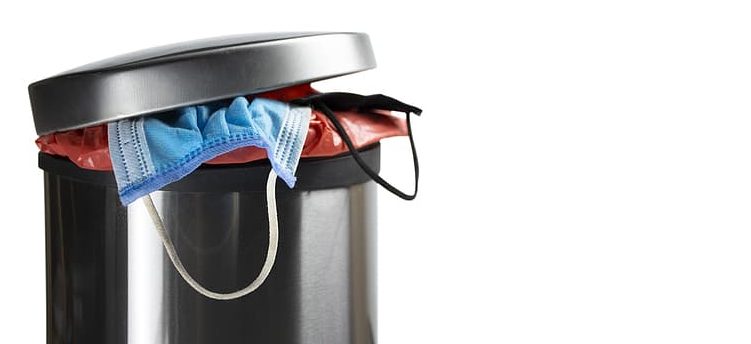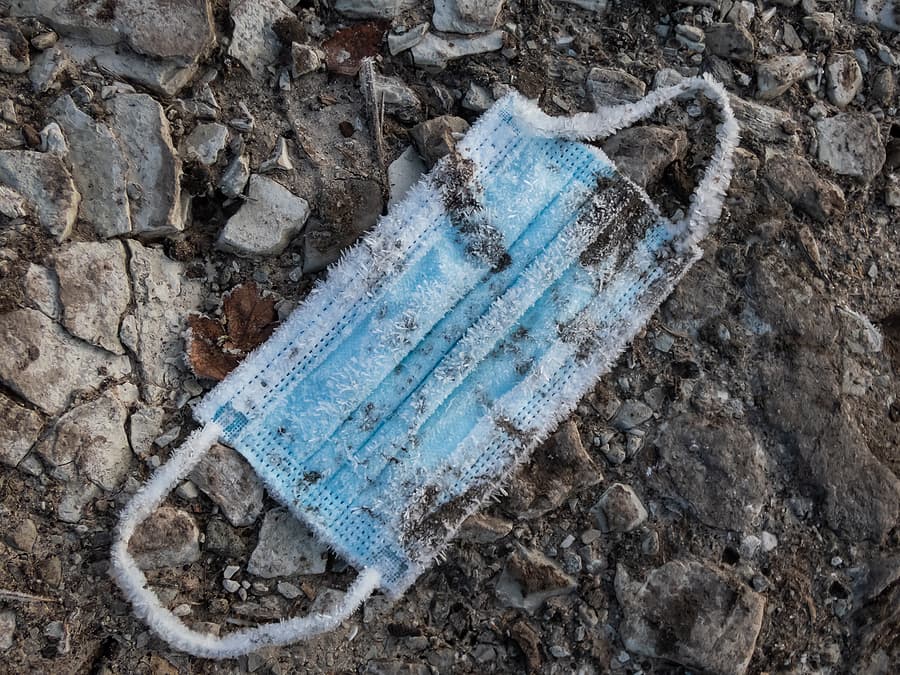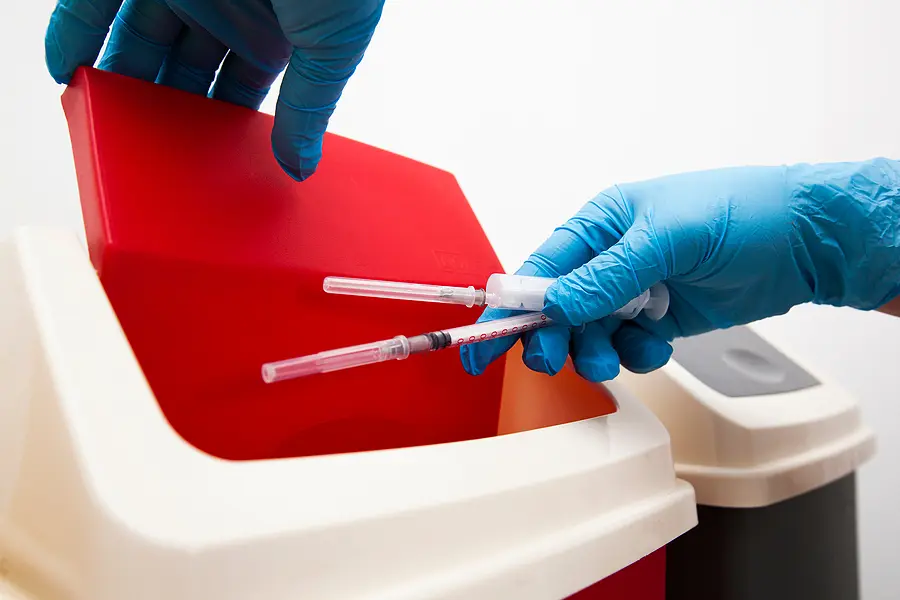Why is Medical Waste Disposal Important?

Proper medical waste disposal is critical for maintaining public health and safeguarding the environment. Healthcare facilities generate various types of waste, including sharps, contaminated materials, and hazardous chemicals, all of which pose significant risks if they don’t handle them correctly. Improper disposal can lead to the spread of infectious diseases, harm wildlife, and contaminate soil and water sources.
A 2023 study estimates that at least 5.2 million people worldwide die each year due to illnesses caused by unmanaged medical waste. Healthcare workers are even more risk, whether they are handling the waste or get exposed through careless actions. We’ll explore why cautious attention to medical waste management is essential for both human health and the environment.
The Importance of Medical Waste Disposal
Environmental Impacts

When medical waste is thrown into landfills, it can leach harmful substances into the air, ground, and water. Over time, the potency of the contamination grows and becomes more dangerous. As water flows through the contaminated soil, pollutants enter into rivers, streams, and the ocean. Human drinking water then becomes compromised and our wildlife is exposed to toxins.
Furthermore, inadequate incineration or incinerating unsuitable materials releases pollutants into the air and leads to ash residue. Incinerating materials that contain chlorine can generate dioxins and furans, which are human carcinogens. These are associated with a variety of health effects and potentially causes cancer. Additionally, incineration of heavy metals or materials with a high metal content, such as lead, mercury, and cadmium, leads to the spread of these toxic metals into the environment.
Only modern incinerators operating at 850-1100 °C and have special gas-cleaning equipment can comply with the international emission standards for dioxins and furans. Alternatives to incineration, such as autoclaving, microwaving, and steam treatments minimize the risks and release of these chemicals or hazardous emissions.
Safety Concerns
Medical professionals, their support staff, and waste workers are at the highest risk for exposure to medical waste. Incorrect disposal of medical waste can cause needlestick injuries or contact with infectious waste. It is estimated that 600,000 to 800,000 needlestick injuries occur annually in the US. Moreover, devastating diseases like Hepatitis, HIV, Ebola, Malaria, and Syphilis can be spread through medical waste. These diseases can have life-long effects and cause death. Implementing safety protocols and extensive training programs for your staff can reduce the risks of needlestick injures and associated infections.
The CDC also refers to medical waste disposal as a national security issue. It is not uncommon for healthcare facilities and labs to develop bioterrorism response strategies and capacities. Safe laboratory practices and medical waste disposal prevents misuse of these biologicals, whereas poor disposal practices could amplify an attack.
Legal Compliance
Healthcare facilities must follow strict regulations set by various agencies, including the CDC, the EPA, and OSHA. Proper disposal ensures compliance with these regulations, avoiding hefty fines and potential reputational damage. For example, the EPA can impose significant fines for violations of the Resource Conservation and Recovery Act (RCRA) that can range from $22,500 to over $93,000 per violation. In addition, individual states can impose their own fines. In California, generators can be fined $2,000 and face up to one year in jail.
Taking additional steps to protect the environment and your patients will also help build a positive reputation for your organization. Today, there are many choices in the medical industry and consumers prefer to support companies that care about their well-being and sustainability for the future.
Safe Solutions

It is a good idea to familiarize yourself with medical waste regulations regarding handling and disposal. Understanding your disposal needs will help you select safe disposal solutions to protect your community, staff, and the environment. Promote practices that reduce the amount of waste your facility generates and ensure proper waste segregation.
Where feasible, choose the safe and eco-friendly treatments of your healthcare waste, such as autoclaving, microwaving, and steam treatments instead of incineration. Build a comprehensive system that addresses responsibilities, resource allocation, handling, and disposal. Furthermore, raise awareness of the risks related to healthcare waste and of safe practices for your staff. Using a certified medical waste disposal provider is a safe and environmentally-friendly way to protect people from hazards when collecting, handling, storing, transporting, treating, and disposing your waste. They provide you with all proper disposal and storage materials your facility needs to safely dispose of its waste.
Find Medical Waste Disposal Services Near You
Medical Waste Pros offers safe solutions for all of your medical waste disposal needs. We follow all federal and state regulations to maintain compliance and keep you safe. Give us a call at (888) 755-6370 or fill out the form to connect with providers near you and receive free quotes on our services.










